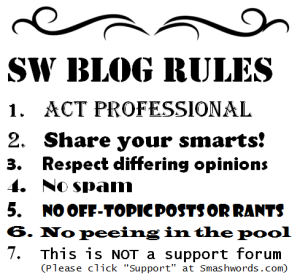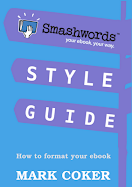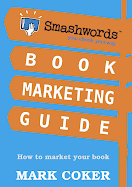Jill Barshay at National Public Radio did a great piece on Marketplace today summarizing the challenges facing the book publishing industry. In summary, book publishers are getting hurt by book stores that take advantage of 90 day return policies to buy more books than they know they can sell and then return unsold books for full refunds, only to turn around days later to re-order the same books again, restarting the 90 day return window (in other words, never having to pay for books until and if they sell through). Under mounting profit pressure, publishers are employing fewer editors and fewer publicists to shephard more books through the system. At the same time, notes Barshay, book publishers are failing to adapt to new digital publishing realities in which authors can self-publish without a publisher. So in other words, publishers are being forced to do less of what was previous their raison d'etre (developing and promoting talent), thereby diminishing their overall value proposition. The NPR piece leaves listeners wondering, if publishers can't support authors, then why shouldn't authors bypass publishers altogether?
Don't miss the comment by April Hamilton that follows the printed online transcript of the story. April correctly summarizes why authors should aspire to remain independent rather than assign their rights away to a publisher.
Thursday, May 29, 2008
Thursday, May 22, 2008
IDPF Reports Wholesale Ebook Sales Up 35%

The International Digital Publishing Forum (IDPF), a non-profit industry group, reported this week that U.S. wholesale ebook revenues grew to $10.1 million in the first quarter of 2008, up 35% over the same period a year ago and up an impressive 23% sequentially over the fourth quarter of 2007. Since these are wholesale numbers, actual retail sales could be up to twice the reported figures.
Are we starting to see the impact of ebook sales through the Amazon Kindle?
Separately today, Barnes & Noble, the country's largest book seller, announced a 1.1 % decline in same store sales and lowered revenue forecasts for the remainder of the year. See the press release here and read the earnings conference call transcript here.
Tuesday, May 20, 2008
Barnes & Noble Considers Acquisition of Borders
The Wall Street Journal reports in Friday's paper that Barnes & Noble, the country's largest book store, is considering an acquisition of Borders Group. The combination would create a retail book selling powerhouse accounting for one third of all US book sales.
Such a combination would likely mean fewer stores and higher prices. I wonder if 10 years from now book stores disappear altogether. If digital music killed the record store, will digital books kill the book store?
As brick and mortar book stores enter their twilight, it's time for independent authors to reassess publishing priorities and start building digital presence.
Such a combination would likely mean fewer stores and higher prices. I wonder if 10 years from now book stores disappear altogether. If digital music killed the record store, will digital books kill the book store?
As brick and mortar book stores enter their twilight, it's time for independent authors to reassess publishing priorities and start building digital presence.
Friday, May 16, 2008
The Hand of Darwin Touches Book Publishing

Sara Lloyd, part of the digital team at publisher Pan MacMillan, has posted a four-part series of interesting pieces here, here, here and here challenging book publishers to rethink not only their role in the new digital ecosystem, but the nature of the book as well. It's a good read, and certainly fits with our thinking here at Smashwords that the book publishing industry will face wrenching change in the next few years.
Lloyd notes how the Internet is disintermediating the distribution of books, potentially challenging one of the primary value propositions for the traditional print publisher. She also notes how consumers are increasingly becoming producers as well, much to the chagrin of the old guard publishers whose 19th century business models still adhere to the traditional author-agent-publisher-distributor-bookstore-consumer approach to book publishing.
At Smashwords, we think we're about to witness a slow and steady disintegration of the traditional book production and distribution supply chain. We will increasingly move to an author-consumer model of book production and marketing, where authors decide what's published and consumers decide what's worth reading. Our definition of "book" will also likely change, where we begin to think of books not as themed content sandwiched between paper but instead as packaged units of emotional and intellectual experience.
Does this mean the traditional print book publishers as we know them today will fall by the wayside? Not necessarily. In all good Darwinian battles, those who create value will survive and thrive.
Thursday, May 15, 2008
Amazon Kindle Sales to Approach $1 Billion by 2010?
Amazon has revealed little data about Kindle sales, but now, according to TechCrunch, Citigroup Analyst Mark Mahaney has issued a report predicting that Amazon will generate up $750 million in Kindle revenues by 2010, with half of that coming from device sales and the other half book sales.
Based on my look at the Kindle, I think it's going to be a huge hit and will expose hundreds of thousands of readers to the joy of digital books. Sure, the device isn't perfect, but with few more simple tweaks and a price reduction Amazon has a killer device on its hands.
Smashwords books are easily readable on the Kindle.
Based on my look at the Kindle, I think it's going to be a huge hit and will expose hundreds of thousands of readers to the joy of digital books. Sure, the device isn't perfect, but with few more simple tweaks and a price reduction Amazon has a killer device on its hands.
Smashwords books are easily readable on the Kindle.
Monday, May 12, 2008
What is a book worth?
Over the last few years as Smashwords gestated in my head, I spent a lot of time contemplating the furious changes to come as digital books make their way to the Internet.
In physical form, a book has characteristics that cause most of us to apply value to it - we may appreciate the cover art, its display is crisp and sharp, it's durable, it's portable, it has weight and substance in our hands, it looks sharp in our library, it tends to smell better with age, and simply reading it in public is form of self-expression.
Simply by transforming a book to digital form, we strip away the physical and have a product that is more ethereal. We also change the perceived value of the book in the eyes of the consumer. Now in digital form, a book is little more than words and images that must compete with all the other forms of information dissemination, knowledge sharing and entertainment, most of which can be had for essentially FREE on the Internet.
So what does this mean for authors and the future of writing? Are digital books moving toward free? Considering the Smashwords business model is predicated on taking a 15% cut of sales, I certainly hope we don't go all free. And as an author who put several hundred hours of work into my own novel, I admit I desire some form of monetary compensation.
Over the weekend, I posed this question to authors over at LinkedIn, asking if we need to broaden our definition of author compensation, and the responses are quite interesting (check them out). Most authors answered they want compensation in cold hard cash. The idea of alternate measures of compensation, such as fame or enhanced credibility, is anathema to most authors who have responded so far. Several have pledged to stop writing without compensation.
The debate is fascinating to me because for years, traditional print publishing - the ideal most authors aspire to as the sign of success - has failed to offer adequate compensation to all but a few authors.
What do you think?
In physical form, a book has characteristics that cause most of us to apply value to it - we may appreciate the cover art, its display is crisp and sharp, it's durable, it's portable, it has weight and substance in our hands, it looks sharp in our library, it tends to smell better with age, and simply reading it in public is form of self-expression.
Simply by transforming a book to digital form, we strip away the physical and have a product that is more ethereal. We also change the perceived value of the book in the eyes of the consumer. Now in digital form, a book is little more than words and images that must compete with all the other forms of information dissemination, knowledge sharing and entertainment, most of which can be had for essentially FREE on the Internet.
So what does this mean for authors and the future of writing? Are digital books moving toward free? Considering the Smashwords business model is predicated on taking a 15% cut of sales, I certainly hope we don't go all free. And as an author who put several hundred hours of work into my own novel, I admit I desire some form of monetary compensation.
Over the weekend, I posed this question to authors over at LinkedIn, asking if we need to broaden our definition of author compensation, and the responses are quite interesting (check them out). Most authors answered they want compensation in cold hard cash. The idea of alternate measures of compensation, such as fame or enhanced credibility, is anathema to most authors who have responded so far. Several have pledged to stop writing without compensation.
The debate is fascinating to me because for years, traditional print publishing - the ideal most authors aspire to as the sign of success - has failed to offer adequate compensation to all but a few authors.
What do you think?
Tuesday, May 6, 2008
Smashwords Launches Public Beta
We went live with Smashwords today, so a big hello to our newest members who join us after nearly two months of private beta testing. My gratitude goes out to our private beta testers who generously shared their feedback leading up to this public launch.
Friday, May 2, 2008
Smashwords to Launch Public Beta on Tuesday May 6

After several years of blood, sweat and cheers, Smashwords is finally launching its public beta this coming Tuesday May 6.
The idea behind Smashwords is simple: We help authors make their digitally published works discoverable by a worldwide audience.
------------------------------------------
The Smashwords Mission
------------------------------------------
I'm really excited about the opportunity digital books present to the world's readers and authors. For centuries, books have remained the gold standard for information dissemination, knowledge sharing and storytelling. Books have shaped the course of mankind.
I love paper books, and I hope they never go away, but print publishing has important economic limitations that limit opportunities for authors to reach their audience. Book printing and publishing is expensive, so book publishers are unable to publish all written works, and even if they could publish all written works, the vast majority of literate people in the world would not be able to find them or afford them.
Paper books are simply too expensive when you consider that 86% of the world's population earns a per capita annual income of less than $10,000 versus a $30,000-$50,000 per capita income level typical in developed countries. Or, consider that over one billion of the world's roughly 6.5 billion inhabitants subsist on less than $1 a day. Paper books are simply too expensive for most of the world.
By moving books into the digital realm, we can start to change the economics of book publishing, while at the same time making the work of great independent authors available to people of all economic backgrounds.
At Smashwords, we want to make publishing more enriching to both authors and publishers alike. Smashwords returns 85% of net proceeds from the sale of each book back to the author or publisher. This means that an author who might otherwise earn a per unit royalty of 40 cents by publishing a $7.95 mass market paperback can make 3.5 times as much per unit by selling the digital book on Smashwords for $2.00 (a 75% lower cost).
Smashwords economics creates a virtuous cycle: By pricing books low, Smashwords authors will expand the potential audience for their books while at the same time increasing their per-unit margins, sales volume and overall profits.
Are most Smashwords authors going to get rich? Definitely not. Although digital book sales today represent a tiny fraction of overall book sales, ebooks are one of the fastest growing segments of the book publishing industry.
Authors will get out of Smashwords what they put into it. Smashwords provides authors a free digital publishing platform and associated book marketing tools that help them build an audience and achieve their dreams. Authors simply upload their manuscript in Microsoft Word, assign sampling privileges and pricing, and we automatically convert it into multiple DRM-free formats.
We expect many authors to price their books at ZERO, and we welcome this. We recognize that most authors write because they have a story to tell, information to share or ideas to communicate, and these noble desires often trump the motive for financial gain.
I invite you to join our campaign to change the way books are published, marketed, discovered and sold.
Best wishes,
Mark Coker
Founder and CEO
Smashwords, Inc.
http://www.smashwords.com
Subscribe to:
Posts (Atom)













%20(1).png)








